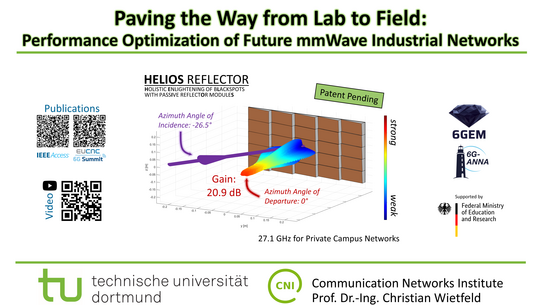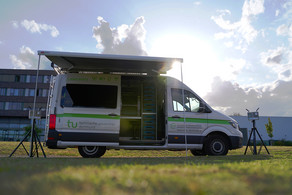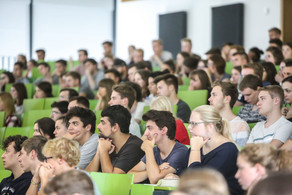mmWAVE research moving from the lab to the field: Thank you for visiting us on HMI 2024!
- News
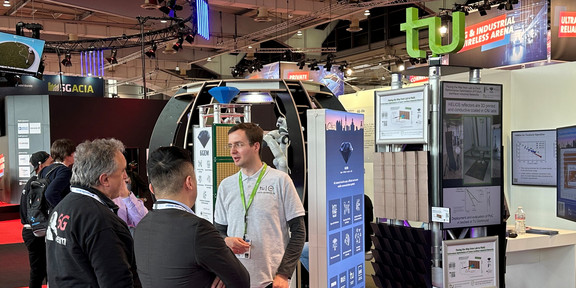
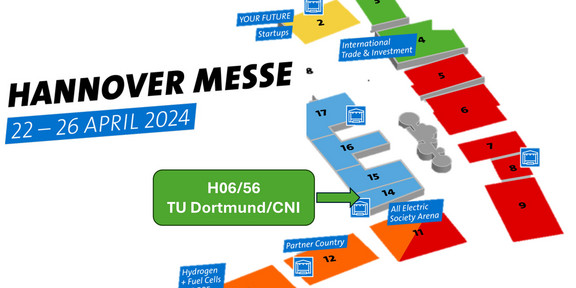
The use of higher frequency bands beyond 6 GHz is considered to be key for future 6G networks. Yet, although generally available for licensing in an increasing number of countries, the 5G FR2 band has not seen much deployment for private networks so far in Europe. The main challenge for these higher frequency bands is proper beam management which allows to react flexibly to the radio conditions.
On HMI 2024, we have presented selected results of a systematic experimental evaluation of a commercial millimeter-wave (mmWave) indoor multi-user deployment in various reproducible channel conditions, in particular depending on Line-of-Sight (LOS) availability. We have shown that the beam management of the analyzed deployment can cope well with multi-user scenarios. To resolve Non-LOS situations, we have demonstrated that our patent-pending passive Intelligent Reflecting Surface (IRS) solution HELIOS artificially introduces a qualitative reflection path that is seamlessly employed by the network to realize high-capacity communication in challenging radio environments utilizing a Beyond Line-of-Sight (BLOS) link. In a subsequent step, we have transferred the concept a real-life industrial production environments at Fraunhofer IPT in Aachen to demonstrate the promising potential of mmWave for real-life indoor factory deployments.
Further technical details can be found in the following upcoming publication:
- M. Danger, S. Häger, K. Heimann, S. Böcker, C. Wietfeld, "Empowering 6G Industrial Indoor Networks: Hands-On Evaluation of IRS-Enabled Multi-User mmWave Connectivity", in European Conference on Networks and Communications & 6G Summit (EuCNC/6G Summit): Operational & Experimental Insights, Antwerp, Belgium, June 2024. (Accepted for Presentation.) [pdf] [Details]
We also leveraged the presentation of reserach projects and companies working on 6G for an in-depth technology monitoring as a contribution to the CC5G.NRW work.
The support of the BMBF (for the 6GEM and 6G-ANNA projects) as well as the MWIKE (for CC5G.NRW) s gratefully acknowledged.
